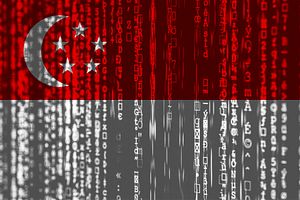When the world declared war on fake news, Singapore rolled out one of the more hardline laws. The Protection from Online Falsehoods and Manipulation Act (POFMA) passed parliament with an easy majority in May last year. Legal experts and free speech advocates worried it would overstep freedoms and curb opposition in the lead up to an election expected this year.
One aspect of the legislation raised eyebrows after its passing last October — the law would extend beyond the borders of the city-state. The POFMA Office, tasked with identifying offenders and issuing reprimands, would pursue “fake news” regarding Singapore produced from abroad.
It is now being tested. Malaysian legal affairs watchdog Lawyers For Liberty released detailed allegations of death penalty procedures earlier this month, including revelations prison officers were trained to “kick the back of the neck of the prisoner with great force in order to break it” in the event of the rope snapping. In its release, the NGO said it had submitted questions to the Singaporean government for a response in October but had not heard back.
After the release of further details, Lawyers For Liberty was accused of violating POFMA and producing fake news. Lawyers for Liberty adviser N. Surendran told South China Morning Post that sources will not be revealed, although they would be willing to testify in support of their allegations if treated as a whistleblower. Regardless, the POFMA Office issued a Correction Notice.
Now the NGO is challenging Singapore’s authorities and the extent of the law’s power. In a suit filed at the Kuala Lumpur High Court at the end of last week, Lawyers for Liberty is suing Singapore’s Law and Home Affairs Minister K. Shanmugam, who oversees the POFMA Office. The case calls for an explicit declaration that Shanmugam cannot enforce the law in Malaysia.
“The reason we brought this suit is that it’s an attempt by Singapore to encroach upon, stifle or crack down on freedom of speech in Malaysia. It is an attempt to reach out their tentacles and impose their own oppressive fake news act on Malaysians issuing statements in Malaysia,” Lawyers for Liberty adviser N. Surendran said of the case.
Citing “non-compliance,” the Lawyers for Liberty website has been blocked for Singaporean internet users, while the case moves ahead. The case will be a key test for how POFMA affects Singapore’s ties with other foreign countries.
This test is occurring amid continued concerns at home as well. A case in point is the coronavirus. Singapore, which has had several confirmed cases already, has fallen prey to viral fake news and hoaxes along with the rest of the region.
The POFMA Office issued notice to Facebook this week demanding a correction to two posts that incorrectly claimed the busy Woodlands MRT station had been closed over fears of the virus. “Facebook is required to carry a Correction Notice on the two Facebook posts which contained the falsehood,” the office said in its notice.
While correcting disinformation designed to scare and confuse the community certainly seems the best use of POFMA since it came into force, it has raised other questions as well, including on the extent of policing – coming from the state rather than relying on educated and informed audiences themselves – as well as the use of POFMA to crack down on opposing or dissenting voices.
To be sure, this is not to say that fact-checking efforts are in vain. Facebook-backed partnerships across much of Asia following the 2016 U.S. election fallout and revelations of the platform’s role in the Rohingya genocide have proved valuable. Similar projects, like BuzzFeed’s tracking of viral fake news produced around the world, debunk and defang disinformation.
But who is tasked with the identification of “fake news” can be as important as what is produced. In this sense, the key question for POFMA is the extent to which the government effort will be viewed as a valuable corrective to threats against the nation, which its supporters claim, or as reflecting a paternalistic lack of trust in Singapore’s citizens and a cover for the further erosion of freedoms, which its opponents may argue.

































